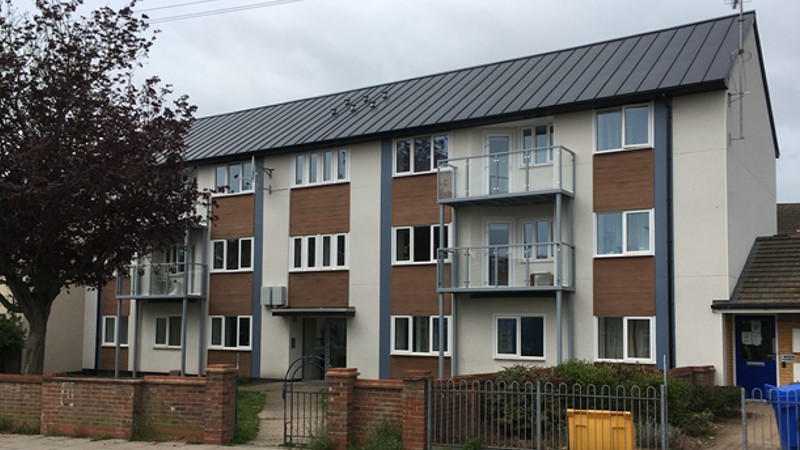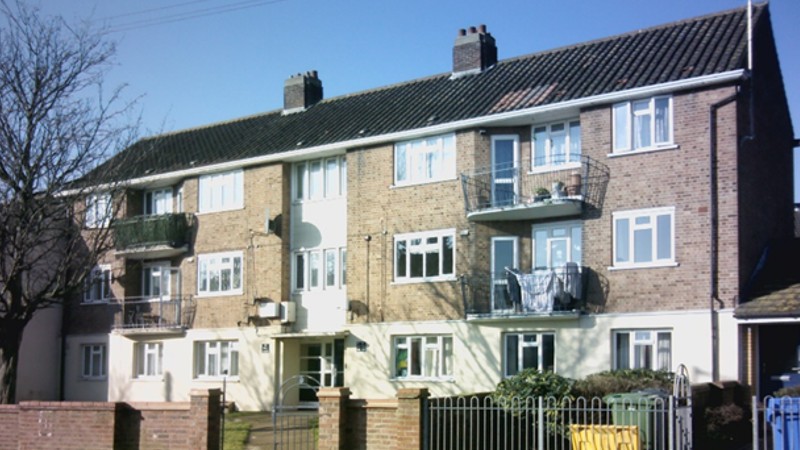National award for green facelift of block of flats

An Oxford Brookes University Professor is part of a team that has won a national award for transforming a 1950s block of seaside town flats into a modern, energy saving living space.
At the Inside Housing Development Awards in November, the ‘Climate Change Retrofit Project of the Year’ was awarded to the innovative development, a collaboration between Beattie Passive, Enhabit and the Low Carbon Building Research Group at Oxford Brookes University which included Postdoctoral Researcher Alastair Howard.
The project involved the deep energy retrofitting of a six-flat council block in Great Yarmouth, turning it into a healthier, greener and climate friendly property. The impact of the retrofit could see energy bills reduced by up to 75%.
This block was chosen for the project due to its traditional 1950s style, a common typology across the UK.
This also demonstrated that the success achieved with the property could be effectively used on a wide range of other buildings across the UK. The work created a ring around the building which was pumped full of insulation, with an end goal of enhancing energy efficiency.

Challenging project
The project aimed to develop a fast, efficient and cost-effective solution to deep energy retrofit, creating a super-insulated envelope around the building that is extremely airtight with no thermal bridges. Residents remained in-situ for the whole retrofit and access to the flats was required only three times during the build – to install the ventilation valves, to remove windows and install new ones, and to install new window reveals.
The £1.2m project was funded by the Department for Business, Energy & Industrial Strategy (BEIS) Thermal Efficiency Innovation Fund.
Reduced energy bills
Oxford Brookes Professor of Sustainable Architecture and Climate Change, Rajat Gupta, said: “We are delighted to receive national recognition for our TCosy2 retrofit research project. The retrofit innovation as exemplified in the project has developed a component system that can easily retrofit any type of building and can be carried out with little preparation work or lengthy design and manufacturing timelines.
“Our monitoring and evaluation before and after the retrofit has shown that heating demand has drastically reduced, and residents have reported a marked increase in quality of life, and a significant decrease in their energy bills.”
